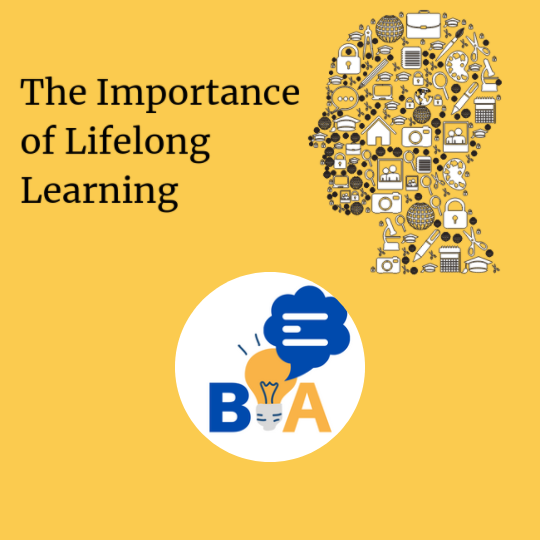Learning – A Never Ending Process
Most people associate learning with formal education at school, college, university etc.
We are all told, from an early age, that we should ‘get a good education’.
Generally speaking it is true that a formal education and the resulting qualifications are important. Education may maximise our potential to find better, more satisfying jobs, earn more and, perhaps, become more successful in our chosen career.
Knowledge can be acquired and skill-sets can be developed anywhere – learning is unavoidable and happens all the time. However, lifelong learning is about creating and maintaining a positive attitude to learning both for personal and professional development.
“Change is the Only Constant” Heraclitus famously said; change in your career, change in your personal life, change in your community and organisations.
As the saying goes, learning is a never-ending process. The world of work is rapidly changing, and people need lifelong learning to advance their skills and stay relevant. Whether it’s going back to the university, taking online courses, or attending industry-specific seminars and workshops, find a way to fit at least one of them into your life for career growth.
There are two main reasons for learning throughout life: for personal development and for professional development. These reasons may not necessarily be distinct as personal development can improve your employment opportunities and professional development can enable personal growth.
The benefits of lifelong learning go beyond career advancement. It can help you understand how the world works. It can help you realize your passions and boost creativity. Whatever it is that you’re interested in, it is one way to live a better life.
What is continuous learning?
Continuous learning is your self-motivated persistence in acquiring knowledge and competencies in order to expand your skills and develop future opportunities. It forms part of your personal and professional development in an effort to avoid stagnation and reach your full potential.
Knowledge is now at everyone’s fingertips. Those not making use of this opportunity will remain where they are – their capabilities diminishing in importance.
Seven benefits of lifelong learning should be reason enough to never stop learning.
1. Remain relevant
Don’t be left behind. Ensure you remain relevant to your sector by keeping up-to-date with trends and adapting your skill set. To function effectively in this rapidly changing world of technology, you need to learn new things to remain valuable
2. Prepare for the unexpected
Lifelong learning will help you adapt to unexpected changes – for example, losing your job and having to depend on new skills to find work. By continuing to learn, you’ll more easily step out of your comfort zone and take on new job opportunities.
3. Boost your profile
When you’re always learning, you’ll keep improving, will grow in your career, and start to receive recommendations from colleagues and managers. The chances are that you’ll switch jobs multiple times throughout your life and you need to learn new skills to adapt accordingly.
4. Competence leads to confidence
Learning new things gives us a feeling of accomplishment which, in turn, boosts our confidence in our own capabilities; you’ll also feel more ready to take on challenges and explore new business ventures.
5. Spark new ideas
Acquiring new skills will unveil new opportunities and help you find innovative solutions to problems. This could earn you more money.
6. Change your perspective
Continuous learning opens your mind and changes your attitude by building on what you already know. The more you learn, the better you’ll get at seeing more sides of the same situation – helping you understand more deeply.
7. Be a Leader and Influencer
Continuous learning isn’t just about you. Lifelong learning helps develop your leadership skills which then translates into fostering lifelong learning in other individuals, by encouraging them to pursue further education.
Read More On Branding – Blogs Marketing & Branding

